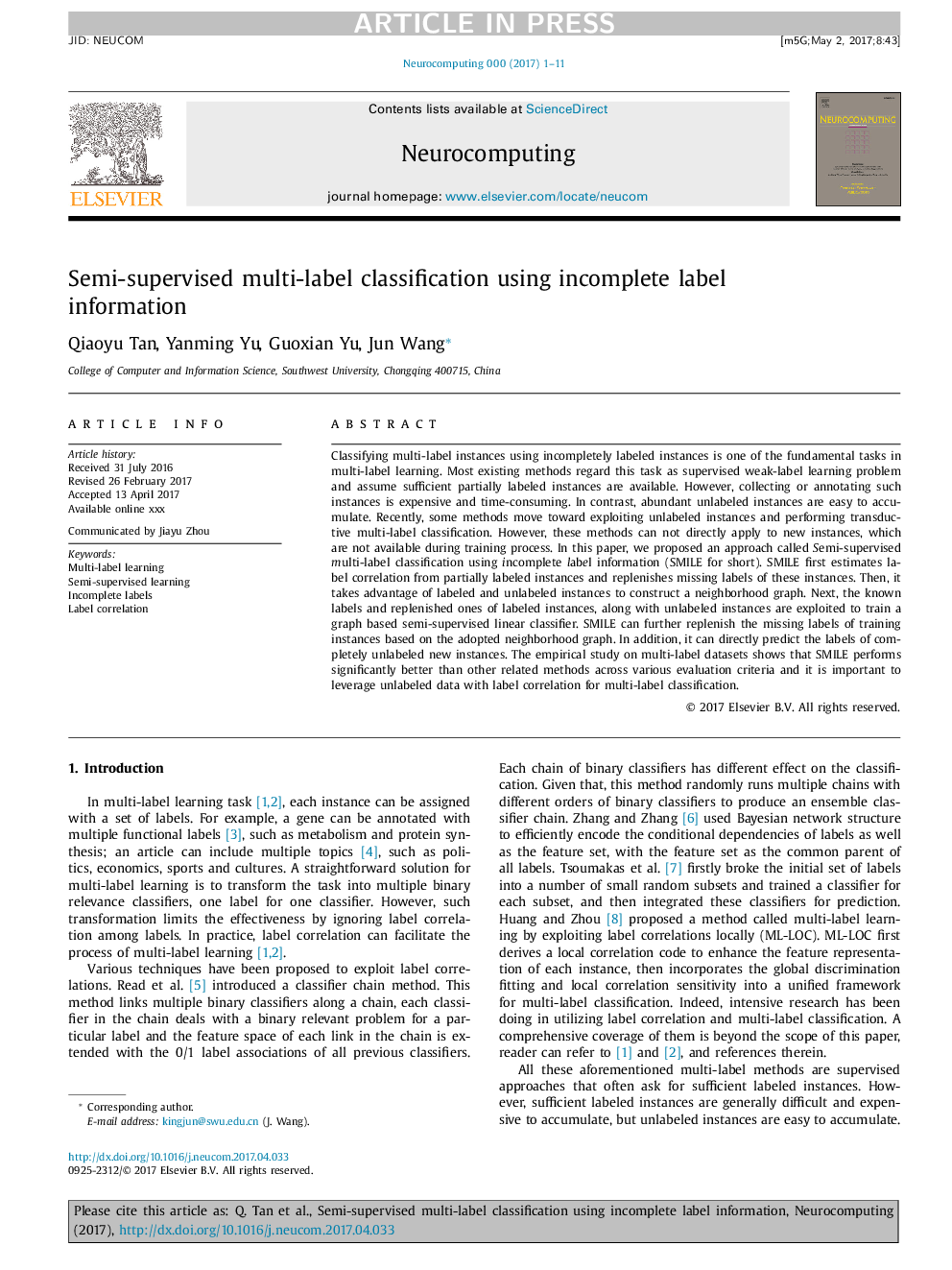| Article ID | Journal | Published Year | Pages | File Type |
|---|---|---|---|---|
| 4947158 | Neurocomputing | 2017 | 11 Pages |
Abstract
Classifying multi-label instances using incompletely labeled instances is one of the fundamental tasks in multi-label learning. Most existing methods regard this task as supervised weak-label learning problem and assume sufficient partially labeled instances are available. However, collecting or annotating such instances is expensive and time-consuming. In contrast, abundant unlabeled instances are easy to accumulate. Recently, some methods move toward exploiting unlabeled instances and performing transductive multi-label classification. However, these methods can not directly apply to new instances, which are not available during training process. In this paper, we proposed an approach called Semi-supervised multi-label classification using incomplete label information (SMILE for short). SMILE first estimates label correlation from partially labeled instances and replenishes missing labels of these instances. Then, it takes advantage of labeled and unlabeled instances to construct a neighborhood graph. Next, the known labels and replenished ones of labeled instances, along with unlabeled instances are exploited to train a graph based semi-supervised linear classifier. SMILE can further replenish the missing labels of training instances based on the adopted neighborhood graph. In addition, it can directly predict the labels of completely unlabeled new instances. The empirical study on multi-label datasets shows that SMILE performs significantly better than other related methods across various evaluation criteria and it is important to leverage unlabeled data with label correlation for multi-label classification.
Related Topics
Physical Sciences and Engineering
Computer Science
Artificial Intelligence
Authors
Qiaoyu Tan, Yanming Yu, Guoxian Yu, Jun Wang,
